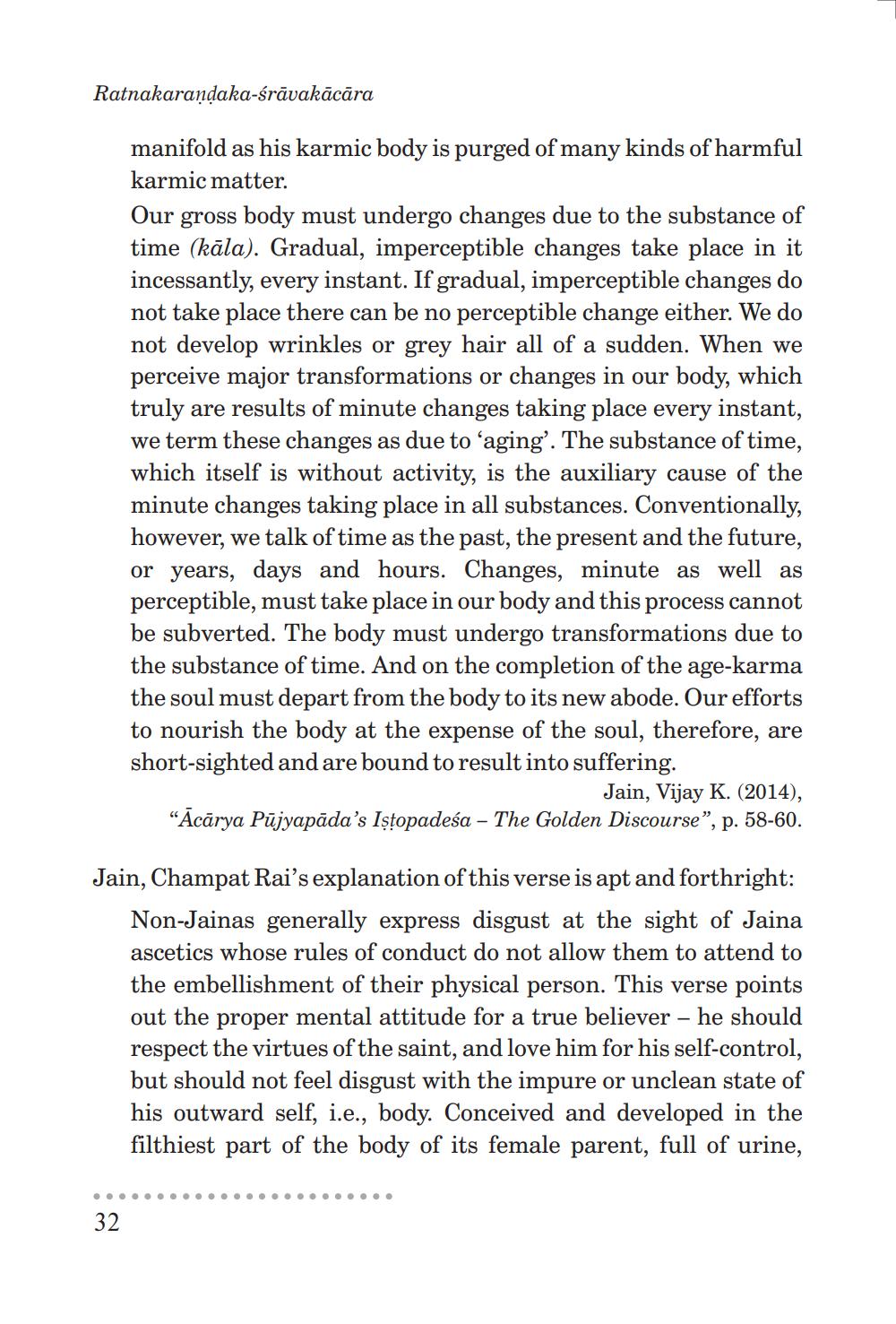________________
Ratnakarandaka-śrāvakācāra
manifold as his karmic body is purged of many kinds of harmful karmic matter. Our gross body must undergo changes due to the substance of time (kāla). Gradual, imperceptible changes take place in it incessantly, every instant. If gradual, imperceptible changes do not take place there can be no perceptible change either. We do not develop wrinkles or grey hair all of a sudden. When we perceive major transformations or changes in our body, which truly are results of minute changes taking place every instant, we term these changes as due to ‘aging'. The substance of time, which itself is without activity, is the auxiliary cause of the minute changes taking place in all substances. Conventionally, however, we talk of time as the past, the present and the future, or years, days and hours. Changes, minute as well as perceptible, must take place in our body and this process cannot be subverted. The body must undergo transformations due to the substance of time. And on the completion of the age-karn the soul must depart from the body to its new abode. Our efforts to nourish the body at the expense of the soul, therefore, are short-sighted and are bound to result into suffering.
Jain, Vijay K. (2014), “Acārya Pūjyapāda's Istopadeśa – The Golden Discourse”, p. 58-60.
Jain, Champat Rai’s explanation of this verse is apt and forthright:
Non-Jainas generally express disgust at the sight of Jaina ascetics whose rules of conduct do not allow them to attend to the embellishment of their physical person. This verse points out the proper mental attitude for a true believer - he should respect the virtues of the saint, and love him for his self-control, but should not feel disgust with the impure or unclean state of his outward self, i.e., body. Conceived and developed in the filthiest part of the body of its female parent, full of urine,
........................ 32




